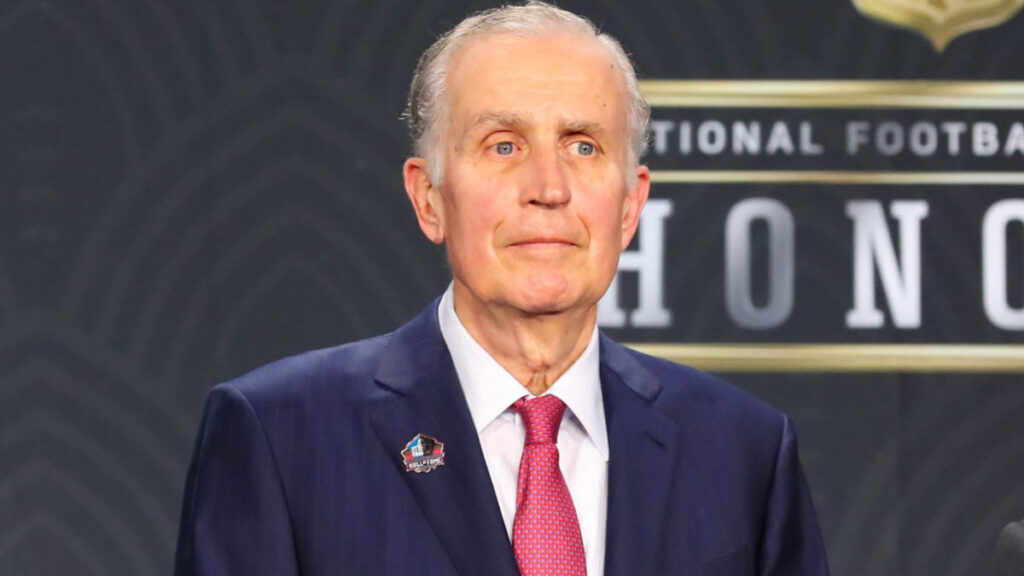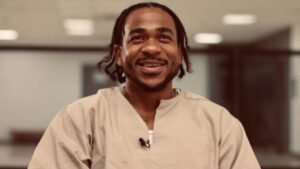The news of Paul Tagliabue death hit the sports world like a slow, stunned breath — the kind of headline that makes you stop mid-scroll. The former NFL commissioner, who quietly steered the league through its most profitable and transformative years, passed away Sunday morning at his home in Chevy Chase, Maryland. He was 84.
It wasn’t sudden — Tagliabue had long battled Parkinson’s disease and heart complications — but it still feels like a loss that echoes. His leadership shaped modern football. His steady voice guided the NFL through moments that could’ve broken it.
And now, that voice is gone.
The Legacy Paul Tagliabue Built — and the Game He Changed
For 17 seasons, from 1989 to 2006, Tagliabue ran the NFL with a calm authority that defined his style. He wasn’t the loudest man in the room — he didn’t have to be. His background as a lawyer, coupled with a sharp sense of fairness, gave him a quiet power that resonated.
Under his watch, the NFL expanded from 28 to 32 teams, launched billion-dollar TV deals, and became America’s most lucrative sport. The league grew not just in size, but in spirit — stadiums got flashier, fan bases exploded, and Sunday football turned into an event that felt sacred.
As ESPN put it in its tribute, Tagliabue “didn’t just protect the game; he grew it.”
It’s easy to forget that when he took the job, skepticism was everywhere. He was replacing Pete Rozelle, one of the most beloved commissioners in sports history. But Tagliabue didn’t try to imitate Rozelle — he just got to work. That’s what people remember most: his ability to handle chaos with composure.
Sometimes, leadership doesn’t need a microphone — just conviction.
When the Nation Stopped, So Did the NFL
Tagliabue’s defining moment came not in a boardroom, but in the quiet days after tragedy.
In September 2001, as the nation reeled from the 9/11 attacks, Tagliabue made the gut-wrenching call to postpone NFL games. He didn’t hesitate. He understood that football — America’s favorite escape — had to pause out of respect.
That decision, remembered by both fans and players, proved who he was: a leader who put humanity before headlines.
Years later, when Hurricane Katrina devastated New Orleans, he once again stood at the crossroads of sports and compassion. He fought to keep the Saints in Louisiana when relocation whispers grew loud. “This city will rise again,” he said at the time — and it did.
Moments like that are why so many tributes this week feel deeply personal. They’re not just remembering a commissioner; they’re remembering a man who saw football as part of the American soul.
Heart, Health, and the Hard Goodbye
Tagliabue’s final years were quieter. Parkinson’s slowly limited his mobility, but never his mind. Those close to him describe a man still asking questions, watching games, still invested in the league he helped define.
When news of his death broke on Sunday, the first wave of tributes came from those who knew him best. Current NFL commissioner Roger Goodell called him “a man of integrity and vision whose leadership put the NFL on the path to unparalleled success.”
NBA commissioner Adam Silver echoed that sentiment, calling Tagliabue “a mentor and a friend” — a rare cross-league tribute that says everything about his character.
Tagliabue is survived by his wife, Chandler (“Chan”), and their two children — a son and a daughter. Friends say his family life was his quiet anchor.
Sometimes, the most powerful legacies are built not on noise, but on grace.

The Complicated Shadow He Left Behind
Even icons have complicated chapters.
Tagliabue’s era saw the NFL flourish — but also face its first rumblings of what would later become the concussion crisis. Critics have argued that the league, under his leadership, could’ve acted faster on head-trauma awareness.
But even those debates underscore his larger legacy: the foundation he built was strong enough to evolve. His successors inherited not chaos, but structure. As The Guardian noted, “Tagliabue’s greatest gift may have been leaving the NFL ready for the future.”
That balance — triumph and tension — feels fitting. Because Paul Tagliabue was never chasing headlines. He was building something meant to last.
And it did.
The Human Side of a Giant
Behind the corporate polish and billion-dollar contracts, Tagliabue was, by all accounts, deeply human.
Former players remember his handwritten notes — short, thoughtful messages congratulating them on milestones or quietly offering encouragement. He wasn’t the kind of commissioner who needed a camera to show he cared.
One retired coach once told People that Tagliabue “listened more than he spoke.” In today’s world, that might be his most radical legacy of all.
The NFL can be loud — chaotic, controversial, and endlessly public. But Tagliabue led it with a lawyer’s brain and a teacher’s heart.
Now, as fans scroll through old clips and memories, you can feel the collective nostalgia. It’s not just about losing a leader — it’s about losing an era.
Remembering a Life Bigger Than Football
When Tagliabue was inducted into the Pro Football Hall of Fame in 2020, he spoke briefly about teamwork — not as a slogan, but as a way of living. “We succeed when we help others succeed,” he said.
That line feels heavier now.
Because for all the numbers — the TV deals, the stadiums, the championships — his truest impact might be in how he led by example. Calmly. Decisively. With empathy.
It’s rare to find someone who can change an empire and remain grounded. Paul Tagliabue did both.
And in the rhythm of Sunday football — in the roar of every stadium he helped build — a little bit of his legacy still hums.
Nishant Wagh is the founder of The Graval and a seasoned digital journalist with over 15 years of experience covering entertainment, media, and culture. He specializes in breaking news and trending stories told with accuracy, context, and depth.




